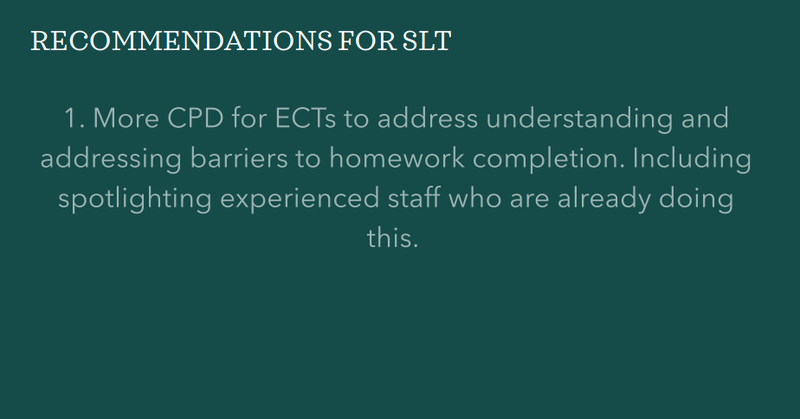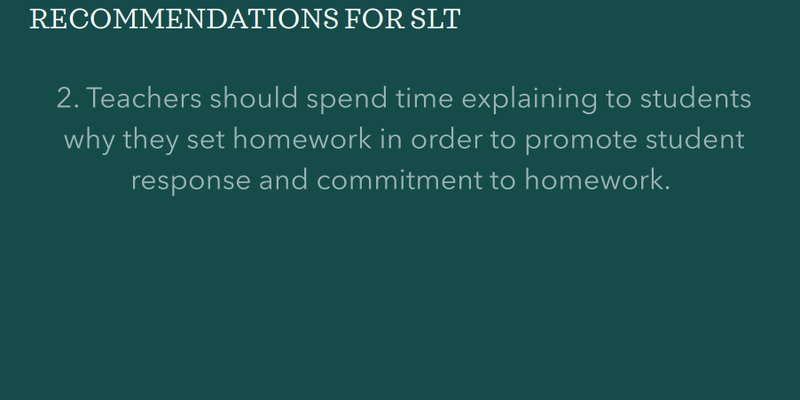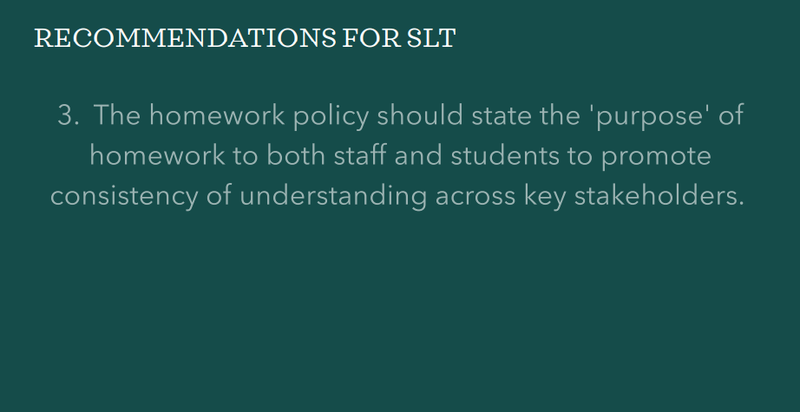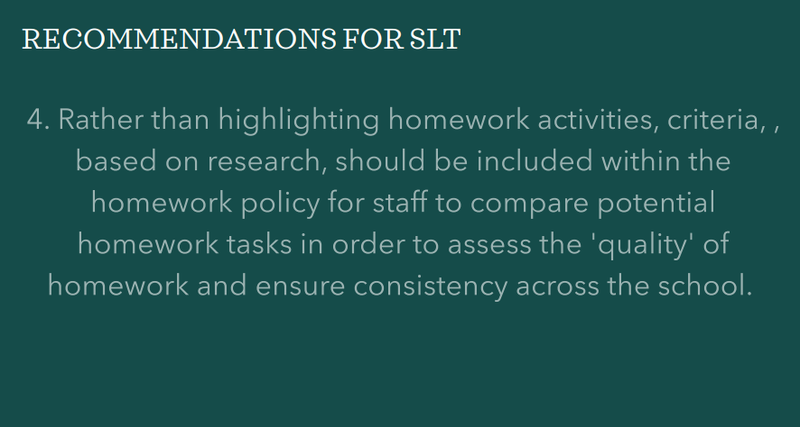A case study investigating what effective homework looks like using teacher and student feedback in a digital age.
- Qualitative
- Student
- Survey
- Focus group
- Homework policy
- Education and Language
Homework has been a contentious issue for many years with some educators rallying behind traditional practices, while some are calling for it, in this digital age and following the Covid-19 pandemic, for its end. The need for homework needs to be reevaluated and redefined. It has become apparent that away from the old paradigm to a new landscape. This case study analyses teacher and student perceptions of effective homework and compare them to what literature and research suggest makes effective homework. This enabled further understanding of new homework how homework is perceived in the context of the school research site, and the findings were used to inform future homework policy. Results show that initial teacher training on the subject of homework was limited despite it being included in the National Teaching Standards. Early career teachers and experienced teachers showed frustration with the lack of student completion. However, student responses suggested an awareness of effective homework practices signifying an understanding and willingness to complete homework. This highlighted a lack of understanding of why students fail to complete homework which needed further investigation is the context of this case study. Additionally, despite the generation of ‘digital age’ teachers, early career teachers appeared to prefer more traditional book-base work as proof of homework so that students could revisit it easily and as a way of evidencing homework. In addition, there was a reluctance to fully utilise online systems, fearing that potential technical glitches might impact on student learning and would mean that they would not complete homework tasks. Lastly, the notion of the effect of homework within the context of school was ultimately flawed, as there was a limited understanding amongst teachers and students about what the purpose of homework. This lack of a consensus amongst the school community suggests the need for greater clarity in the homework policy in order to encourage more effective homework.
I chose to undertake this case study in my own school as this was where I had access to investigating homework on a day to day basis. I was able to speak with teachers regularly to promote the completion of homework feedback. In addition, I could work with students I teach to gain an insight into their perceptions of homework. As this was a case study, the purpose was to study "a contemporary phenomenon with some real-life context" (Yin, 2003). Therefore, this meant that the issue of homework and the debate around what effective homework looks like, could be studied in the context of school X.
This research was useful to the community as it has identified a key issue that is apparent in the debate around homework being that the purpose of homework is ambiguous and needs clarification. It has also provided a suggestion for creating effective homework which can be used by teachers in order to bring consistency of the provision of homework across the school. This means, instead of focusing on the activity, consider a criteria which identifies what effective homework looks like and compare tasks to this. In addition, it has identified the reasons why students may not have been completing homework and will allow the school to address this issues moving forward in a more appropriate way than they may have been previously.




